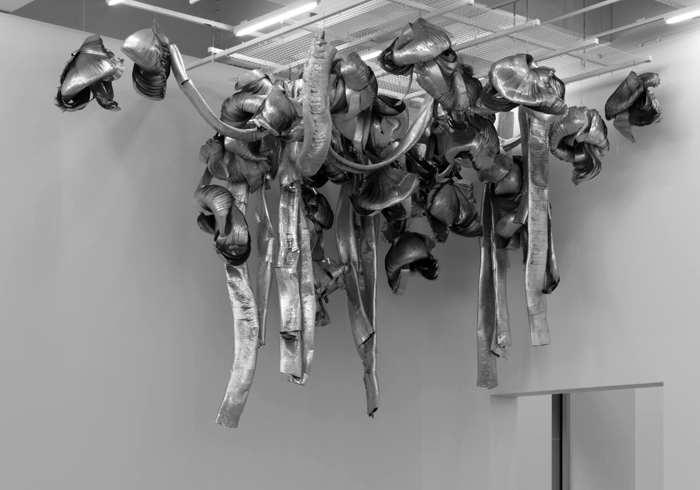Marisa Merz, the only woman member of the Arte Povera movement that revolutionised European contemporary art, has died. The Italian artist was included in Germano Celant’s Arte Povera + Azioni Povere exhibition in 1968, establishing her alongside Alighiero Boetti, Jannis Kounellis, Michelangelo Pistoletto and others at the vanguard of postwar sculpture. Yet despite a long and varied career, she only began to receive institutional attention comparable to her male peers (including her husband, Mario Merz) in the past ten years. She was awarded the Golden Lion for Lifetime Achievement at the Venice Biennale in 2013, the year of her solo show at the Serpentine Gallery in London. In 2017 a retrospective of her work opened at the Met Breuer in New York, touring to the Hammer Museum in Los Angeles, the Serralves Museum in Porto, Portugal, and the Museum der Moderne Salzburg in Austria.
For most of her life however, her work received a limited audience. She often made her sculptures – reoccurring materials include copper wire, oiled paper, lead, clay, glass, gold leaf, wood – and films from her home in Turin. Created in the late 1960s, her Untitled (Living Sculpture) twisted metal sheets into roughly tubular forms, which she hung from her kitchen ceiling. Questions of domesticity, often with an unresolved tension or sense of brutality, abound in her work. Scarpette (shoes), a series from 1968 and 1975, consisted of wearable slippers knitted in nylon thread and fastened with iron nails. Merz continued working into her nineties, notably producing series of large pastels on paper.
22 July 2019
